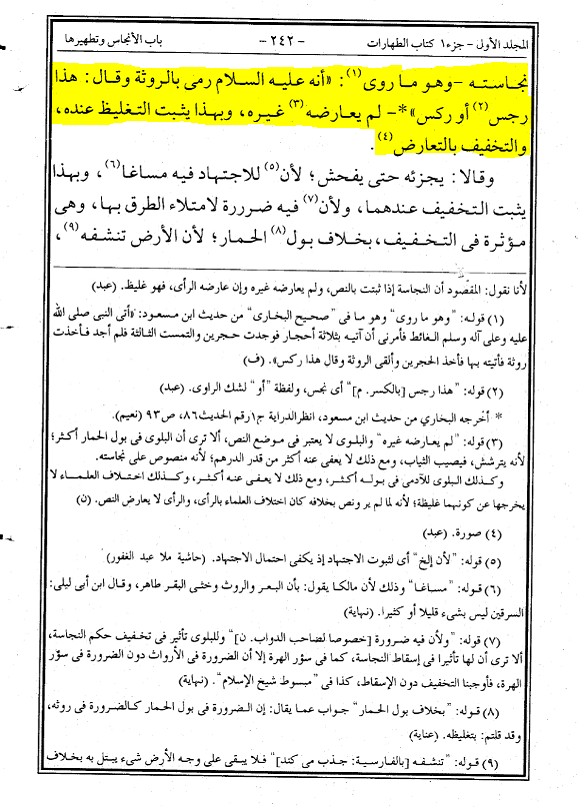According to the Book of
Ezekiel, God commanded the Prophet Ezekiel:
יב וְעֻגַת שְׂעֹרִים, תֹּאכְלֶנָּה; וְהִיא,
בְּגֶלְלֵי צֵאַת הָאָדָם--תְּעֻגֶנָה, לְעֵינֵיהֶם. {ס}
“Eat it as a barley
cake; you shall bake it on human excrement before their eyes.” (Ezekiel 4:12)
However, the Prophet
Ezekiel objects to this, saying:
יד וָאֹמַר, אֲהָהּ אֲדֹנָי יְהוִה, הִנֵּה
נַפְשִׁי, לֹא מְטֻמָּאָה; וּנְבֵלָה וּטְרֵפָה לֹא-אָכַלְתִּי מִנְּעוּרַי וְעַד-עַתָּה,
וְלֹא-בָא בְּפִי בְּשַׂר פִּגּוּל. {ס}
“Then I said, ‘Ah, Lord God, my person
was never defiled; nor have I eaten anything that died of itself or was torn by
beasts from my youth until now, nor has foul flesh entered my mouth.’” (Ezekiel
4:14)
God then amends His original
commandment due to Ezekiel’s objection:
טו וַיֹּאמֶר אֵלַי--רְאֵה נָתַתִּי לְךָ
אֶת-צפועי (צְפִיעֵי) הַבָּקָר, תַּחַת גֶּלְלֵי הָאָדָם; וְעָשִׂיתָ אֶת-לַחְמְךָ,
עֲלֵיהֶם. {ס}
“He answered me, ‘see, I allow you cow’s
dung instead of human excrement; prepare your bread on that.’” (Ezekiel 4:15)
This passage in the Hebrew Bible has a
number of problems.
1. God initially commands his Prophet
to eat bread baked with human excrement.
Although there is nothing explicit in
the Torah to suggest that human excrement is impure or defiling, yet Ezekiel’s
objection implies that it is. In other words, God is commanding one of His
prophets to defile himself, something which He himself has prohibited!
2. Ezekiel challenges God by objecting
to His command resulting in God Himself compromising with Ezekiel!
This passage implies that a human being
(Ezekiel) has more wisdom and tact than God Himself, who is apparently
persuaded by His own prophet to reverse His initial commandment!
3. God finally commands Ezekiel to eat
bread baked with cow dung
This implies that cow dung is not
considered impure and does not defile!
Some Bible followers object to Islam
and the incident of the Prophet (peace be upon him) recommending a group of apostates
to drink camel urine. They conveniently forget that the relevant Hadith is
not a general recommendation, but only to a specific group of people (who
became apostates), directing them to a specific set of camels. Never did the
Prophet (peace be upon him) give a general recommendation to his followers to
drink camel urine as relief for any ailment. On the contrary, he said:
اسْتَنْزِهُوا مِنَ الْبَوْلِ فَإِنَّ
عَامَّةَ عَذَابِ الْقَبْرِ مِنْهُ
Avoid urine,
because most of the punishment of the grave is because of it (Daraqutuni)
أَكْثَرُ عَذَابِ الْقَبْرِ مِنَ الْبَوْلِ
"The
Messenger of Allah said: 'Most of the torment of the grave is because of
urine.'" (Sunan Ibn Maja: Isnaduhu Hasan)
This Hadith is the basis for the
general ruling in Islamic law that all urine and excrement, regardless of
whether it is from a human, an animal whose meat is Haram, or even an
animal whose meat is Halal, is impure, defiling, and lack of care in
avoiding it is a cause for punishment in the grave.
Accordingly, the view of two great
Islamic jurists, namely, Imams Abu Hanifa and Abu Yusuf: “The two jurists rely
on the words of the Prophet (God bless him and grant him peace), ‘Maintain
cleanliness against urine, because most of the torments of the grave are due to
it’ in which there is no detail (for the type of urine).”
Reference: al-Hidayah; Kitab al-Taharat
With regard to the impurity of dung,
including of an animal whose meat is Halal, such as cattle, the proof is
in the Hadith:
فَأَخَذَ الْحَجَرَيْنِ وَأَلْقَى الرَّوْثَةَ وَقَالَ
" هَذَا رِكْسٌ
Abdullah b. Mas’ud brought two
stones and a piece of dung. He (the Prophetﷺ)
took the two stones and threw the dung away, saying, ‘it is impure’” (Sahih
al-Bukhari)
In the narration recorded by Ibn
Maja, the word Rijs (impurity) is used:
فَأَتَيْتُهُ بِحَجَرَيْنِ وَرَوْثَةٍ فَأَخَذَ الْحَجَرَيْنِ
وَأَلْقَى الرَّوْثَةَ وَقَالَ " هِيَ رِجْسٌ "
For this reason, it is related from
Imam Abu Hanifa:
“If the dress is soiled by faeces of
horses or cattle to an extent that is more than a dirham prayer is not
permitted in it, according to Abu Hanifah (God bless him) due to a text that is
laid down about its impurity and this is the report that ‘the Prophet (God
bless him and grant him peace) threw away dung saying this is filth (rijs
or riks).’ This report was not opposed by another report, which established
its enhanced impurity, while light impurity is established through conflict (of
texts).”
Reference: al-Hidayah; Kitab
al-Taharat
In conclusion, while the Bible
implies that cattle dung is pure and doesn’t defile, and relates the story of
prophet Ezekiel baking bread with cattle dung, the Shari’ah of Islam states
that all urine and dung, including that of clean animals, is impure and must be
avoided, let alone consumed.











What is wrong with the second point, keeping in mind that the Prophet (PBUH) asked God to decrease the number of prayers from 50 to 5?
ReplyDeleteGood question. In the Mi'raj episode, it is stated that 5 prayers is actually 50 prayers in the Sight of Allah. The Prophet صلى الله عليه وسلم did not object to the initial commands, but based on the advice of Moses, he went back to ask for a reduction. Furthermore, I believe the Mi'raj episode was a vision in which Allah intended to illustrate certain matters to the Prophet صلى الله عليه وسلم. So it is not exactly comparable to the Biblical account of Ezekiel outright objecting to God's commandment to him to eat dung.
Delete